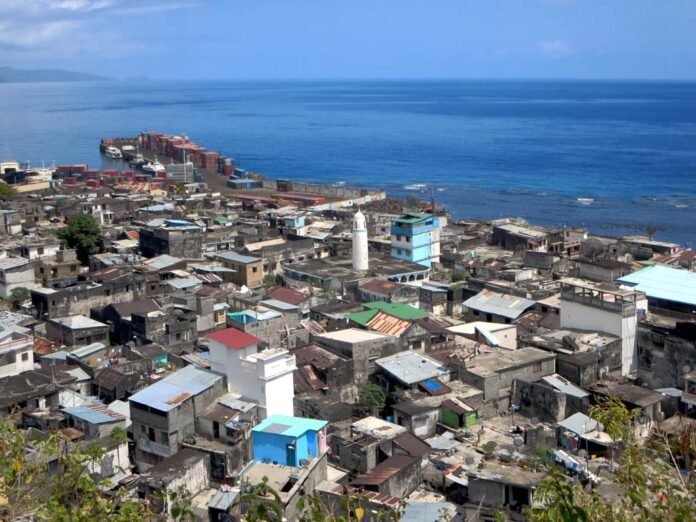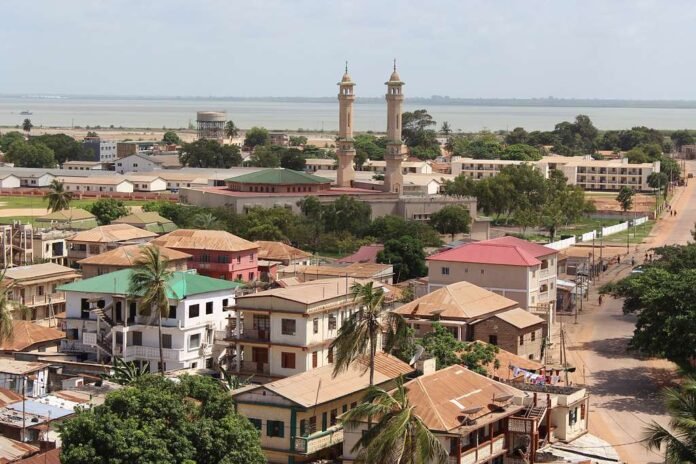Benin’s health insurance landscape is characterized by a dual system comprising public and private health insurance schemes. While both aim to improve access to healthcare, they differ significantly in terms of structure, funding, accessibility, and target demographics.
Public Health Insurance: Universal Access with State Support
Public health insurance in Benin is largely government-subsidized and aims to provide universal healthcare, especially to the most vulnerable populations. The flagship program, ARCH (Assurance pour le Renforcement du Capital Humain), offers free treatment for common illnesses like malaria, respiratory infections, and trauma, primarily in public facilities. As of late 2022, ARCH had enrolled over 867,000 individuals, with the government covering up to 100% of costs for extremely poor citizens. In addition to ARCH, RAMU (Régime d’Assurance Maladie Universelle) supports preventive services such as vaccinations and prenatal care, ensuring a broader population reach.
Other public schemes include community-based health insurance, which operates mainly in rural areas, and public employee health insurance, which is mandatory for civil servants. These initiatives are supplemented by state-funded health services, which uphold the constitutional right to basic healthcare.
Private Health Insurance: Customized Plans for the Affluent
On the other hand, private health insurance is offered by companies such as NSIA Benin, SUNU Assurances Vie, and SAHAM Assurance Vie. These providers offer tailored coverage, including access to private hospitals, outpatient care, and even international services. Plans are generally more comprehensive, covering dental, optical, and maternity benefits, and often come with “tiers payants” (third-party payment) systems for hassle-free billing.
Private insurance is typically used by wealthier individuals, expatriates, and corporations seeking premium services and faster care. Accessibility is stronger in urban areas, with shorter wait times and a broader network of providers compared to public options.
Key Differences
The most striking difference lies in funding and cost. Public health insurance is largely funded by the state, with minimal or no contribution from the poorest citizens. In contrast, private insurance requires significant out-of-pocket premiums, making it inaccessible to many.
In terms of access and quality, public schemes primarily operate through government-run facilities, which may suffer from resource shortages and long queues. Private insurance offers more flexibility, faster service, and higher-quality care through private clinics and hospitals.
Notable Similarities
Despite these differences, both systems aim to expand access to healthcare and reduce financial hardship. They also incorporate preventive care and coverage for chronic conditions, and are increasingly integrating digital solutions for patient management. Furthermore, both public and private providers are moving toward universal health coverage (UHC) goals, with reforms and collaborations intended to bridge service gaps.
Top Public Health Insurance Options in Benin
Benin’s healthcare system is steadily evolving, and the government has been working towards improving healthcare access through public health insurance schemes. While private healthcare and out-of-pocket spending still dominate much of the health service landscape, one major public health insurance program is operational in the country. As of now, Benin does not have a multitude of public health insurance schemes—only one government-supported system is formally in place. Below is an overview of this primary public health insurance option, including its costs, services, features, and consumer perception.
1. RAMU – Régime d’Assurance Maladie Universelle (Universal Health Insurance Scheme)(Official Website: https://www.sante.gouv.bj/)
Cost:
The contribution rates under RAMU are progressive and depend on the income of the beneficiary. For individuals in the informal sector or with low income, the premium is heavily subsidized by the government. On average, premiums range from CFA 2,500 to CFA 10,000 per quarter (approximately USD $4–$16), with exemptions available for the most vulnerable populations, including the indigent, elderly, and children.
Available Services / Coverage Features:
RAMU offers a basic but expanding package of health services. Covered services include:
- General medical consultations
- Essential medications
- Hospitalization for common conditions
- Maternal and child health services
- Routine surgeries
- Preventive care including vaccinations
Specialized services, such as advanced diagnostics or high-cost surgeries, are not always included in the basic package but may be partially covered in future policy expansions.
Open for All or Limited:
RAMU is designed to be universal, hence the term “Assurance Maladie Universelle.” However, in practice, enrollment is still limited. The scheme is open to all Beninese citizens and long-term residents, with a phased rollout strategy. Initially focused on public sector workers and select vulnerable populations, it is gradually expanding to include informal sector workers and rural communities.
Core Financial Features:
- Subsidized premiums: especially for vulnerable populations.
- Risk pooling and redistribution: funds from higher-income contributors help subsidize care for lower-income members.
- No or low co-payments for essential services within covered facilities.
- Government co-financing: The state significantly contributes to the funding pool to ensure scheme sustainability.
- Enrolment incentives: community outreach and mobile registration units aim to boost coverage in underserved areas.
Consumer Satisfaction Score:
RAMU has received moderate to positive feedback, particularly among enrolled individuals who previously lacked access to affordable care. However, challenges remain in terms of:
- Geographic disparities in service quality
- Long wait times at public facilities
- Limited awareness in rural areas
On an informal satisfaction scale (as formal surveys are limited), the program scores around 3.5 out of 5 based on local NGO assessments and community feedback. Satisfaction tends to be higher in urban regions where medical infrastructure is stronger.
Top Private Health Insurance Providers in Benin
Private health insurance in Benin is still a growing sector, primarily serving urban populations, expatriates, and middle-to-upper income groups. Most Beninese rely on out-of-pocket spending or public schemes like RAMU, but a few private companies offer supplemental or comprehensive health coverage. Here are the most prominent private health insurance providers operating in Benin, analyzed across cost, services, accessibility, financial structure, and consumer satisfaction.
1. NSIA Assurances Bénin(Official Website: https://www.nsiaassurancesbenin.com/)
Cost:
Premiums range from CFA 50,000 to CFA 600,000 per year (approximately USD $80–$950), depending on the individual or family plan and the level of coverage.
Available Services / Coverage Features:
- General and specialist consultations
- Diagnostic tests and lab work
- Hospitalization and surgical care
- Emergency services
- Maternity and pediatric care
- Optional dental and vision add-ons
Open for All or Limited:
Open to individuals, families, and corporate groups. Available nationwide, though most services are clustered in urban centers like Cotonou.
Core Financial Features:
- Tiered plans with varying deductibles
- Reimbursement or direct billing depending on provider agreements
- Discounts for corporate clients and family packages
- Co-payment of 10–20% on some services
Consumer Satisfaction Score:
Generally rated 4.2 out of 5 for customer service, prompt reimbursement, and access to private clinics.
2. Saham Assurance Bénin (part of Sanlam Group)(Official Website: https://bj.sanlam.com/)
Cost:
Premiums average between CFA 100,000 and CFA 800,000 per year (USD $160–$1,300), depending on age, health status, and package type.
Available Services / Coverage Features:
- Primary and specialist care
- Inpatient and outpatient hospitalization
- Advanced diagnostics
- Chronic disease management
- Emergency medical evacuation (optional add-on)
Open for All or Limited:
Available to the general public, corporate clients, and international residents. Strong presence in urban and semi-urban areas.
Core Financial Features:
- Modular plan options
- Flexible premium payment structures
- Employer-sponsored packages
- Direct access to Saham-affiliated clinics for cashless service
Consumer Satisfaction Score:
Approximately 4.0 out of 5, appreciated for its corporate packages and customer responsiveness, though claims processing times can vary.
3. Activa Assurances(Official Website: https://www.group-activa.com/)
Cost:
Annual premiums range from CFA 60,000 to CFA 500,000 (USD $95–$800). Special rates for group plans.
Available Services / Coverage Features:
- Preventive and curative care
- Emergency and specialist care
- Dental and optical services (optional)
- Hospitalization in private and semi-private rooms
- Access to a regional health network across West Africa
Open for All or Limited:
Primarily targeted at formal sector employees, businesses, and self-employed professionals. Open to individuals upon medical underwriting.
Core Financial Features:
- Offers both reimbursement and third-party billing options
- Annual cap on coverage amounts
- Flexible claims management through a mobile app
- Group rates for SMEs and associations
Consumer Satisfaction Score:
Rated 3.8 out of 5; clients appreciate the regional access but note that urban bias and premium costs can be limiting.
4. Colina Assurances Bénin(Official Website: https://www.colinaassurances.com/)
Cost:
Premiums vary from CFA 70,000 to CFA 550,000 annually (USD $110–$900), tailored to individuals and families.
Available Services / Coverage Features:
- Family medicine and specialized care
- Hospitalization with private room options
- Surgery, diagnostics, and therapy services
- Optional maternity and dental coverage
- Preventive screening packages
Open for All or Limited:
Widely accessible to individuals and families, with a focus on Cotonou and Porto-Novo residents. Some limitations in rural coverage.
Core Financial Features:
- Competitive premium-to-coverage ratios
- Loyalty discounts for long-term clients
- Moderate co-payment and deductible structures
- Cashless hospital admission available at partner facilities
Consumer Satisfaction Score:
Scores around 3.7 out of 5, with clients praising plan diversity but sometimes reporting communication gaps.
5. ARCA Assurances(Official Website: https://www.arca-assurances.fr/)
Cost:
Plans start from CFA 50,000 to over CFA 400,000 per year (USD $80–$650), depending on risk profile and coverage tier.
Available Services / Coverage Features:
- Basic outpatient care
- Hospital and surgery packages
- Maternity and family planning
- Option for dental and optical coverage
- Limited international coverage options
Open for All or Limited:
Open to individuals, entrepreneurs, and small businesses. Known for affordability and simplified signup.
Core Financial Features:
- Economical plans for low-income professionals
- Streamlined claims system
- Direct pay options with a growing network of private hospitals
- Premium discounts for early or lump-sum payments
Consumer Satisfaction Score:
Rated 3.5 out of 5, seen as a budget-friendly option with decent service but limited in advanced or international coverage.
READ MORE: Private and public health insurance of Algeria (Make informed choices)


